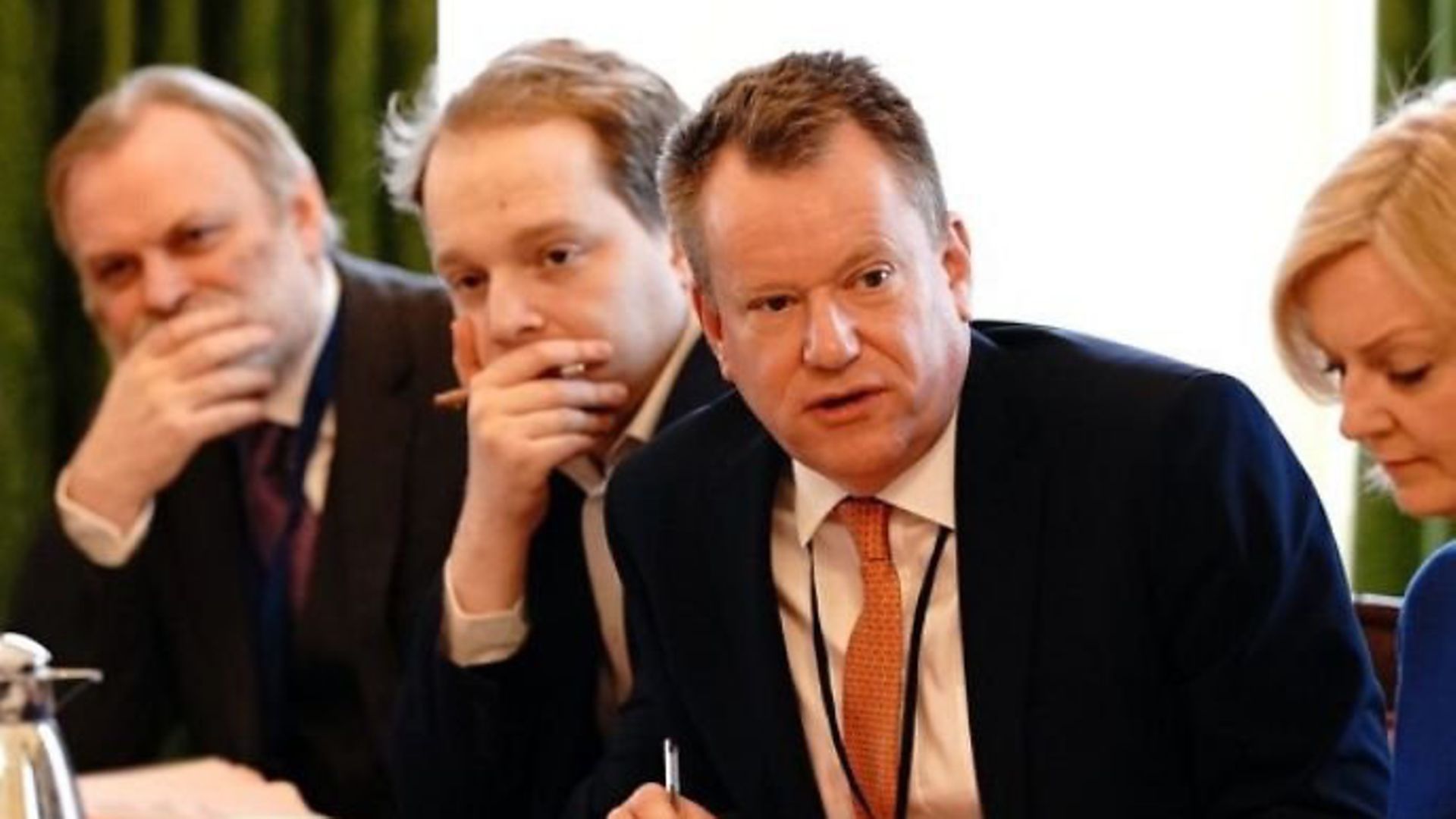
The UK’s Brexit negotiator has admitted the government underestimated the impact of Brexit on Northern Ireland.
David Frost, who led the talks with the EU, said the disruption to trade between Great Britain and the country had been far greater than what was expected.
Speaking to a committee of MPs he said there had been a “bigger chilling effect” than first thought – but also laid some of the blame at the door of the EU.
Asked about new border checks as a result of the Northern Ireland Protocol, he said: “I think the broader question is that the processes around the boundary between GB and Northern Ireland are significant.
“They probably have a bigger chilling effect than we thought on GB businesses wanting to move goods into Northern Ireland and that is one of the problems that’s underlying some of the unrest and political developments we’re seeing in Northern Ireland.”
He added: “Obviously, from the EU’s point of view the easiest solution to any border problem is that we should just operate the same rules and laws as they do, and that solves the problem, obviously that doesn’t work for us and that isn’t going to be the solution.
MORE: Major and Blair were right about Brexit and Northern Ireland
“That was obviously one of the big problems with the original backstop and everything that went with it, so we’re not going back there.”
Frost described how the boundary between Great Britain and Northern Ireland had caused an “unsettledness” which was made worse by the EU’s threat to block coronavirus vaccine exports in January.
“Our assessment of the situation, or my assessment anyway, is that businesses and a good proportion of society in Northern Ireland feel anxious about the effects of the boundary – the trade boundary – between GB and Northern Ireland.
“They are seeing effects from it, they are having to divert supplies to some extent, and they are concerned about where the spike might take us and obviously we’ve seen political developments, we’ve seen the resignation of the first minister.
“There is a degree of, I would say, unsettledness, it seems to me, which is stronger than we thought it might be and I think to some extent has been caused by the EU’s unfortunate intervention in Northern Ireland at the end of January over vaccines, which created a new situation which we’re all dealing with.”
Frost said he would expect to see progress on remaining issues regarding the trade boundary before July 12.
Despite not setting a time limit on discussions, he warned there was a “real-life timetable in Northern Ireland”.
“Coronavirus restrictions are coming to an end, we all know that the late spring and summer in Northern Ireland can sometimes be turbulent, some days are significant in that, so we have to take that reality into account.
“We’ll always be willing to talk about anything whenever, but we also have a responsibility to try and avoid further deterioration and difficulties in that situation, and that obviously is a possibility as we get into the spring and summer.”
Asked whether this meant July 12, which marks the Ulster Protestant celebration of the anniversary of the Battle of the Boyne, was an important date in that timetable.
He replied: “I would like to feel that we will be making progress with the EU in good time before that date.”
In a Mail on Sunday newspaper column over the weekend, Frost threatened the EU with drastic action if it did not find new solutions to the Northern Ireland protocol.
Warning: Illegal string offset 'link_id' in /mnt/storage/stage/www/wp-includes/bookmark.php on line 357
Notice: Trying to get property 'link_id' of non-object in /mnt/storage/stage/www/wp-includes/bookmark.php on line 37






